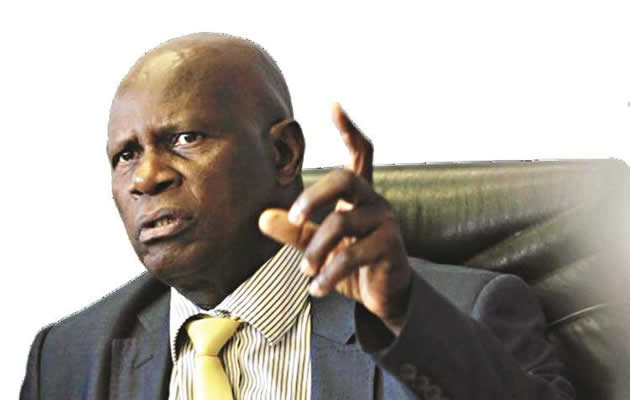AfDB projects Zimbabwe GDP at 1.3pc

Harare Bureau
THE African Development Bank has projected Zimbabwe’s economy to grow by a conservative 1.3 percent this year; lower than forecasts by Government and International Monetary Fund of between 2 and 3.7 percent.
The AfDB projected Zimbabwe’s gross domestic product would increase by 1.3 percent in 2017 spurred mainly by agriculture, following a favourable rainy season, tourism, manufacturing, construction and financial sectors.
“Zimbabwe’s gross domestic product (GDP) growth declined from 1.1 percent in 2015 to an estimated 0.5 percent in 2016. It is projected to increase by 1.3 percent in 2017 with agriculture, tourism, manufacturing, construction and financial sectors expected to improve,” AfDB said in its economic outlook for 2017.
The International Monetary Fund recently reviewed upwards its economic projection for Zimbabwe to 2 percent from its earlier forecast of -2,5 percent made late last year.
The IMF’s latest growth forecast by the Bretton Woods institution, however, falls conservatively short of the more upbeat revised economic growth forecast by Zimbabwe for the year. Finance and Economic Development Minister Patrick Chinamasa revised his 2017 growth forecast to 3.7 percent in March citing an anticipated bumper harvest on the back of a good rainy and farming season. The initial growth projection was 1.7 percent.
Minister Chinamasa said the good harvest for 2017, anchored on Command Agriculture where Government invested just under $200 million, would spur economic growth.
Minister Chinamasa told military officers at the Zimbabwe Staff College that agriculture would spur economic growth, with grain deliveries expected at three million tonnes, the highest production for Zimbabwe in decades.
“I anticipate after the revision, our growth to be around 3.7 percent from 1.7 percent or so that we had anticipated in the 2017 National Budget,” the minister said.
And in its report titled Global Economic Outlook for 2017 released last month, the IMF projected that the domestic economic would this year expand by 2 percent.
AfDB said Zimbabwe received above normal rainfall this season, which was a major boost for agriculture and the economy. Poor performance of Government revenues against a background of high recurrent expenditure led to a fiscal deficit in 2016.
The fiscal deficit is estimated at $1,042 billion (7.3 percent of GDP), against a target of $150 million.
AfDB said removal of some goods from the Open General Import Licence in June 2016 coupled with a decline in agricultural production owing to drought has pushed up prices.
Zimbabwe emerged out of deflation in February 2017 with annual monthly inflation at 0,06 percent after gaining 0,71 percentage points on the January rate.
Inflation is expected to remain positive in 2017, hovering between 1 to 2 percent, on the back of expected increase in global oil prices and economic recovery.
The regional bank also noted challenges facing the economy such as cash shortages owing to rising informality, fiscal revenue under-performance, declining capital inflows and export receipts, a high fiscal deficit and public indebtedness; external imbalances and capital flight.










Comments